第50章 NAPOLEON AND HIS SYSTEM(2)
At least this is our interpretation of the manner in which were always propagated the Idees Napoleoniennes.Not such, however, is Prince Louis's belief; and, if you wish to go along with him in opinion, you will discover that a more liberal, peaceable, prudent Prince never existed: you will read that "the mission of Napoleon"was to be the "testamentary executor of the revolution;" and the Prince should have added the legatee; or, more justly still, as well as the EXECUTOR, he should be called the EXECUTIONER, and then his title would be complete.In Vendemiaire, the military Tartuffe, he threw aside the Revolution's natural heirs, and made her, as it were, ALTER HER WILL; on the 18th of Brumaire he strangled her, and on the 19th seized on her property, and kept it until force deprived him of it.Illustrations, to be sure, are no arguments, but the example is the Prince's, not ours.
In the Prince's eyes, then, his uncle is a god; of all monarchs, the most wise, upright, and merciful.Thirty years ago the opinion had millions of supporters; while millions again were ready to avouch the exact contrary.It is curious to think of the former difference of opinion concerning Napoleon; and, in reading his nephew's rapturous encomiums of him, one goes back to the days when we ourselves were as loud and mad in his dispraise.Who does not remember his own personal hatred and horror, twenty-five years ago, for the man whom we used to call the "bloody Corsican upstart and assassin?" What stories did we not believe of him?--what murders, rapes, robberies, not lay to his charge?--we who were living within a few miles of his territory, and might, by books and newspapers, be made as well acquainted with his merits or demerits as any of his own countrymen.
Then was the age when the Idees Napoleoniennes might have passed through many editions; for while we were thus outrageously bitter, our neighbors were as extravagantly attached to him by a strange infatuation--adored him like a god, whom we chose to consider as a fiend; and vowed that, under his government, their nation had attained its highest pitch of grandeur and glory.In revenge there existed in England (as is proved by a thousand authentic documents)a monster so hideous, a tyrant so ruthless and bloody, that the world's history cannot show his parallel.This ruffian's name was, during the early part of the French revolution, Pittetcobourg.
Pittetcobourg's emissaries were in every corner of France;Pittetcobourg's gold chinked in the pockets of every traitor in Europe; it menaced the life of the godlike Robespierre; it drove into cellars and fits of delirium even the gentle philanthropist Marat; it fourteen times caused the dagger to be lifted against the bosom of the First Consul, Emperor, and King,--that first, great, glorious, irresistible, cowardly, contemptible, bloody hero and fiend, Bonaparte, before mentioned.
On our side of the Channel we have had leisure, long since, to re-consider our verdict against Napoleon; though, to be sure, we have not changed our opinion about Pittetcobourg.After five-and-thirty years all parties bear witness to his honesty, and speak with affectionate reverence of his patriotism, his genius, and his private virtue.In France, however, or, at least among certain parties in France, there has been no such modification of opinion.
With the Republicans, Pittetcobourg is Pittetcobourg still,--crafty, bloody, seeking whom he may devour; and perfide Albion more perfidious than ever.This hatred is the point of union between the Republic and the Empire; it has been fostered ever since, and must be continued by Prince Louis, if he would hope to conciliate both parties.
With regard to the Emperor, then, Prince Louis erects to his memory as fine a monument as his wits can raise.One need not say that the imperial apologist's opinion should be received with the utmost caution; for a man who has such a hero for an uncle may naturally be proud of and partial to him; and when this nephew of the great man would be his heir likewise, and, hearing his name, step also into his imperial shoes, one may reasonably look for much affectionate panegyric."The empire was the best of empires,"cries the Prince; and possibly it was; undoubtedly, the Prince thinks it was; but he is the very last person who would convince a man with the proper suspicious impartiality.One remembers a certain consultation of politicians which is recorded in the Spelling-book; and the opinion of that patriotic sage who avowed that, for a real blameless constitution, an impenetrable shield for liberty, and cheap defence of nations, there was nothing like leather.
Let us examine some of the Prince's article.If we may be allowed humbly to express an opinion, his leather is not only quite insufficient for those vast public purposes for which he destines it, but is, moreover, and in itself, very BAD LEATHER.The hides are poor, small, unsound slips of skin; or, to drop this cobbling metaphor, the style is not particularly brilliant, the facts not very startling, and, as for the conclusions, one may differ with almost every one of them.Here is an extract from his first chapter, "on governments in general:"--"I speak it with regret, I can see but two governments, at this day, which fulfil the mission that Providence has confided to them;they are the two colossi at the end of the world; one at the extremity of the old world, the other at the extremity of the new.
Whilst our old European centre is as a volcano, consuming itself in its crater, the two nations of the East and the West, march without hesitation, towards perfection; the one under the will of a single individual, the other under liberty.